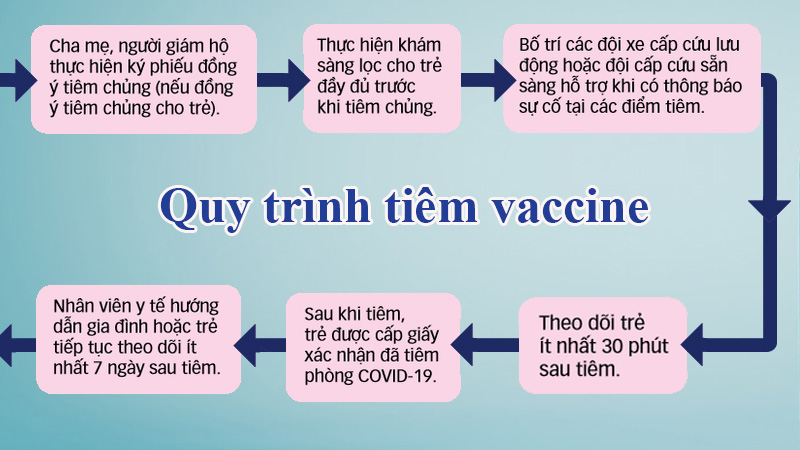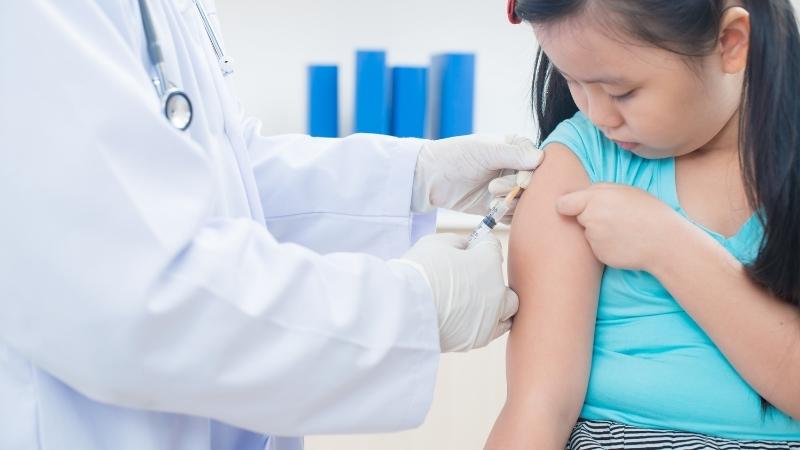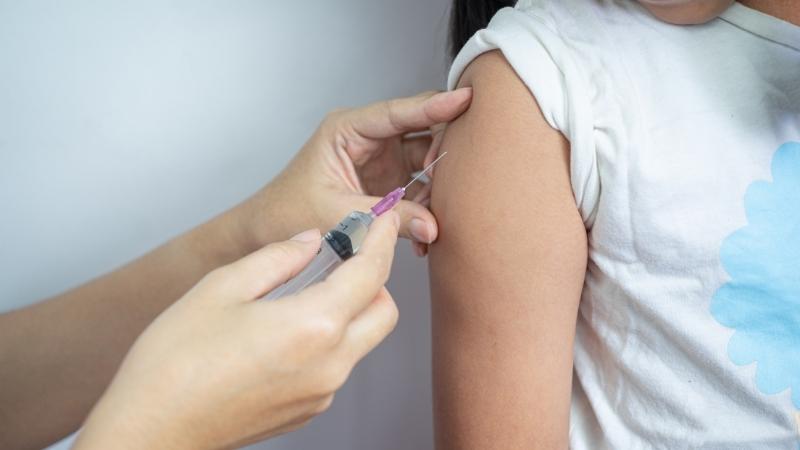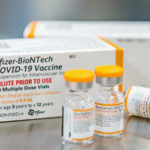On , the Ministry of Health issued Document No. 8688/BYT-DP to the Departments of Health of provinces and centrally-run cities regarding COVID-19 vaccination for children aged 12 to 17. What does this document contain, and when will children in this age group be vaccinated? Read on to find out more!
1 COVID-19 Vaccination Procedure for Children Aged 12 to 17
The vaccination organization is carried out in accordance with the provisions of Section III of the “Guidance on Organizing COVID-19 Vaccination Sessions” issued together with Decision No. 3588/QD-BYT dated , by the Ministry of Health.
 COVID-19 Vaccination Procedure for Children Aged 12 to 17
COVID-19 Vaccination Procedure for Children Aged 12 to 17
The vaccination procedure for children is as follows:
-
Parents or guardians must sign a consent form (if they agree to have their child vaccinated) using the template provided with this document.
-
Conduct a pre-vaccination health screening in accordance with the current guidelines of the Ministry of Health and indicate the type of vaccine to be used as per the manufacturer’s instructions.
-
Arrange mobile emergency response teams to be on standby and ready to assist in case of any incidents at the vaccination sites.
-
Monitor the children for at least 30 minutes after vaccination.
-
Provide a vaccination certificate for COVID-19.
-
Instruct families on how to monitor the children for at least 7 days post-vaccination, following the guidelines provided by the Ministry of Health.
2 Which COVID-19 Vaccine Will Be Used for Children Aged 12 to 17?
 Which COVID-19 Vaccine Will Be Used for Children Aged 12 to 17?
Which COVID-19 Vaccine Will Be Used for Children Aged 12 to 17?
Starting from , the national COVID-19 vaccination campaign for children will be carried out using the Comirnaty vaccine, manufactured by Pfizer-BioNTech of the United States. This vaccine is recommended by the World Health Organization for use in children and has been administered in multiple countries.
The Ministry of Health has announced: “This vaccine ensures the safety of children.” At the meeting, Minister Nguyen Thanh Long requested that ministries, sectors, and local authorities prepare for the vaccination of children against COVID-19, in accordance with the age groups specified in Document No. 8688 dated . This will ensure that the vaccination drive is safe, scientific, and effective.
For further reference:
3 Pre and Post-Vaccination Precautions for Children
Pre-Vaccination Precautions
- Bring any prescriptions and medical records (if available) so that the vaccination screener can review and prescribe the appropriate COVID-19 vaccine for your child.
- You will also need to bring your child’s vaccination records when they receive the COVID-19 vaccine.
- Additionally, bring your ID card for easy information registration.
- To ensure your child’s well-being, let them rest and go to bed early before the vaccination.
- It is important to explain the vaccination process to your child in a calm and reassuring manner.
- Similarly, if there is a long wait, you should give your child a light snack to reduce any feelings of hunger.
- To boost your child’s health, you can give them multivitamins or effervescent vitamin C tablets (during mealtimes) before the vaccination.
- For girls, unless they are experiencing severe menstrual pain, vomiting, fatigue, or fever, there is no need for concern or delay in vaccination due to their period.
For further reference:
 Pre and Post-Vaccination Precautions for Children
Pre and Post-Vaccination Precautions for Children
Post-Vaccination Precautions
After vaccination, it is important to monitor the following:
- Encourage your child to drink plenty of fluids to help reduce fever.
- Additionally, you can apply ice to the injection site to reduce swelling and pain.
- Do not leave a personal bandage on the injection site for an extended period. You may help your child remove the bandage after 30 minutes.
- It is recommended to keep your child at home and avoid outdoor activities or sports on the day of vaccination.
- Your child’s health should be monitored for at least 30 minutes after vaccination, and your healthcare provider should be notified immediately if any symptoms arise.
For further reference:
This article has provided information on the expected timeline for COVID-19 vaccination for children aged 12 to 17. We hope it has offered you the insights you need.
Source: Ministry of Health
A Nationwide COVID-19 Vaccination Drive for Children Aged 5-11: Protecting Our Youngest Citizens.
“With the ongoing COVID-19 vaccine rollout, there has been significant progress in protecting adolescents aged 12-17. Now, the question on everyone’s mind is: When will the younger cohort, aged 5-11, have their turn to receive the COVID-19 vaccine? It’s time to delve into this topic and explore the possibilities.”































